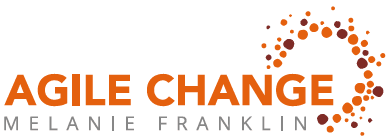This blog is a follow up to my paper describing the possible new elements of the “new” normal. Now we must understand navigating the “new” normal.
As this crisis progresses, I take time out each weekend to assess where I am and work out what comes next. I thought I would share my summary this weekend to give you some thoughts about where in your work-life and career choices you go next.
I have based my assessment on this three-phase model that I have been using in crisis management for the last 20 years.

As I have navigated through crisis mode into transition (not the old world, but not an accepted set of new practices) I take comfort from the realisation that although I am in strange times things have progressed pretty much according to the great teaching of Professor William Bridges. He explained that any transition from our current ways of working to a new approach would involve 3 steps:
In crisis mode I was catapulted like all of us quickly from shock and awareness of the need to change into the strange neutral zone of creating temporary solutions and making them work very rapidly. I remember the panic I felt that first Sunday as I started my first ever course using Microsoft Teams. I was in shock that things had changed so rapidly, with cancelled flights and a re-location to my home office.
As I had so much work already booked with clients, my first foray into virtual training was swiftly followed by workshops, board meetings and brainstorming sessions for the various programmes I support. I had so many events planned, that I had lots of opportunities to practice, and I was able to share my experiences with others and learn from them.
Over the next couple of weeks I continued to innovate, to improve my capability and make better use of the technology. My confidence returned and I sensed new habits forming midway through the third week. I no longer had to refer to my notes, I had set up new teams, created new events that these actions were becoming automatic. This enabled me to get through my workload with a decreasing level of stress.
In the last few weeks I have entered transition. Instead of responding to events, honouring everything that was in my diary in the best way possible, I have actively planned new events and originated new work. The awareness of the need to do this was slower and I have stayed longer in the practice phase. But as we are entering our 10th week of lockdown I am moving into this becoming the norm. I am applying best practice, by helping to formalise this new way of working. I have sorted out my office furniture and lighting and got rid of some of the paperwork that was my crutch during the crisis phase. I am now at the point of trying to optimise this transitional phase, recognising this is my new reality for now.
The “new” normal will not arrive until there is a vaccine or at least a workable treatment for Covid 19. When that happens there will be another shift, when office work will become a possibility, but not a certainty. I don’t think the new normal is going to look like the old normal. I don’t think those of us in the knowledge economy are going to work face to face every day, and online courses and workshops are going to be part of my way of life. I will fly around the world less and I will have more family time at home. I will have the chance to walk my dog before work and have a meal in the evening with people I love rather than 10000 metres in the air.
I think it is important to recognise that I am in this transitional phase, so that I am motivated to optimise how I work now. I need to recognise that I have new skills, but in these new ways of working I am not at my peak of performance. There is still lots of practice needed. I want to be as good in the new world as I was in the old. I am motivated by a recognition that these new skills are not temporary, and that I will take many of them forward into the new normal, whenever it arrives. For me these new skills involve a lot of online facilitation, and getting really good at using breakout rooms, virtual whiteboards and polls. I also need to shift my behaviours to a whole new level of virtual leadership – more on that next week.
Meanwhile, please share your thoughts on this post and what you think your new skill set is going to be. Contact me for more information.
